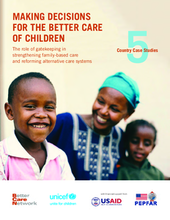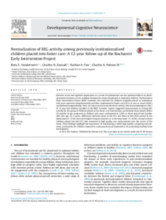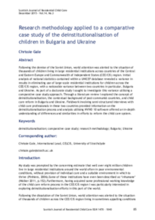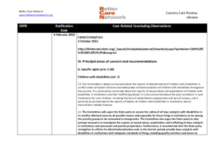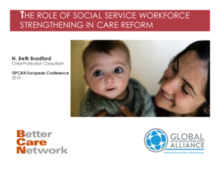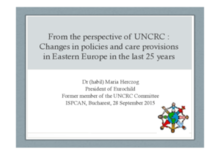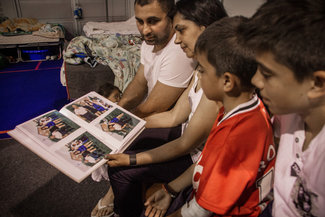

Displaying 811 - 820 of 1079
This article presents an overview of the Polish system of foster welfare, its regulations by law and directions for further transformation.
A group of activists who were formerly raised in Romania's communist-era orphanages have created an association called Federeii. The group is pushing Romanian authorities to recognize and apologize for a variety of abuses committed against an estimated 500,000 children in the country's orphanages that existed before the end of the Cold War. The abuse and neglect, including physical and sexual abuse, are discussed in the article.
Published jointly with UNICEF, this new BCN Working Paper focuses on the role of gatekeeping in strengthening family-based care and reforming alternative care systems. This Working Paper reviews different approaches to gatekeeping in five countries--Brazil, Bulgaria, Indonesia, Moldova, and Rwanda--to consider what has and has not worked, to analyze lessons learned from practice, and to reflect on the implications for improving policy and programs in this area.
The Bucharest Early Intervention Project (BEIP) examined the outcomes for children who were originally placed in institutions; these children were randomized into two groups and followed longitudinally, with some being moved into foster care and others remaining in institutional care. This study reports on the brain electrical activity (electroencephalogram, or “EEG”) of 12-year-old children in this study, in order to examine the impact of movement to foster care after early psychological deprivation as a result of institutionalization.
This study discusses a variance in results in eliminating use of large-scale residential institutions for children across the CEE/CIS region.
This country care review includes the care-related Concluding Observations adopted by the Committee on the Rights of Persons with Disabilities.
This study from Lumos provides an analysis of a survey administered to temporary foster carers in June 2015 in seven regions of the Czech Republic to address negative perceptions of foster carers and to determine whether public criticisms were founded.
This presentation was given by Beth Bradford at the ISPCAN European Conference in September 2015.
This presentation was given at the ISPCAN Conference in Bucharest, Romania in September 2015. The presentation reviews similarities and differences in national care reform efforts in the Eastern Europe region, highlights the main care-related issues in the region 25 years ago, describes the reforms and improvements made in the region as well as the challenges and responses to reforms, and provides recommendations for the way forward.
This post on the Global Social Service Workforce Alliance blog, by Stela Grigoras from Partnership for Every Child, Moldova, and Florence Martin, director of the Better Care Network, provides an overview of the situation of children's care in Moldova and ways that community level workers are engaged in helping to reform the care system.

